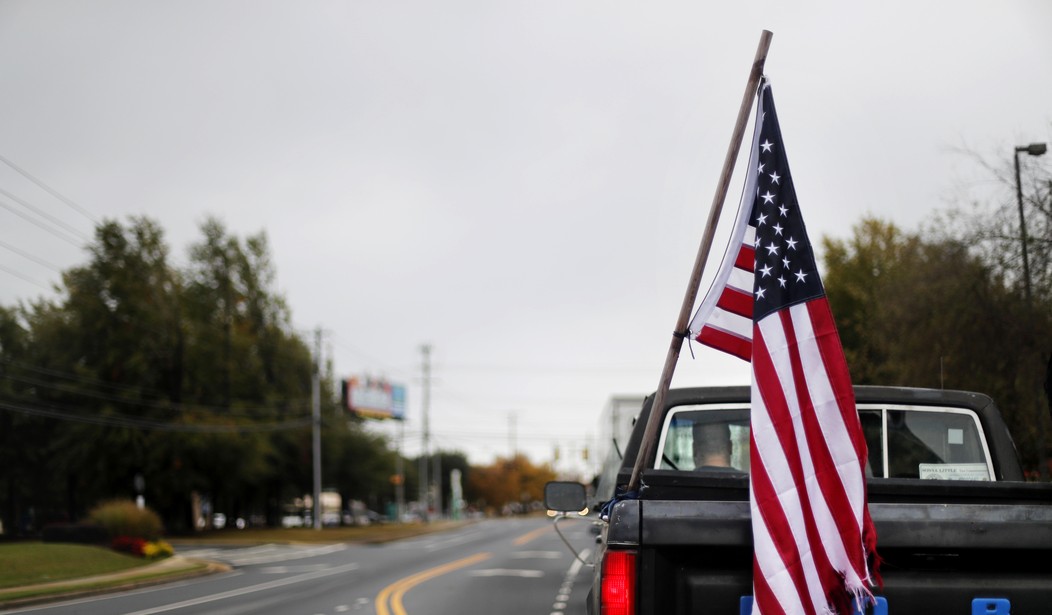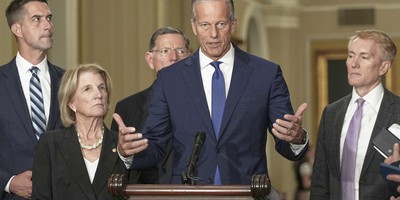In 1989, Ronald Reagan gave his farewell speech in the Oval Office. After the live coverage on ABC, then-White House reporter Sam Donaldson offered a Democratic rebuttal of sorts on the Reagan legacy. Later, on NBC, David Letterman asked Donaldson if presidents are required to talk to reporters.
Donaldson said no, but "it doesn't do anyone any good if a president doesn't let people know what he's doing and thinking, assuming he is thinking. ... Before you know it he'll go on to Bitburg, he'll sell arms to the ayatollah, he'll do things that are nutty."
It's quite a contrast with the aftermath of President Joe Biden's farewell address. A fact-based reporter could have looked at this speech on the Biden legacy and pointed out the word "inflation" was nowhere in this 17-minute speech. Neither were the words "immigration," "migration" or "border." He threw in some "nation of immigrants" poetry, but he didn't address his failure. The word "Afghanistan" wasn't uttered.
So while Donaldson reflexively recalled the Reagan mini-scandal of going to a "Nazi cemetery" in Bitburg and Iran-Contra as "nutty," ABC White House reporter Mary Bruce was repeating, not reporting.
"This was a chance for President Biden to tout his accomplishments, try to define his own legacy, but also argue the importance of American democracy and the need to protect it, saying the ideals of America are constantly being tested." Not one negative element of Biden's presidency surfaced.
It was the same on NBC. "Meet the Press" host Kristen Welker energetically repeated Biden's wild-eyed warning about "oligarchy" under Trump and his alleged conspirators in Big Tech. Welker couldn't remind viewers that Facebook and Twitter energetically suppressed negative information on the Bidens in 2020 that helped Biden get elected. That wasn't "oligarchy"?
Recommended
Apparently not, because Democrats think they are synonymous with Democracy, even after they installed Kamala Harris without a primary, kept other Democrats like Robert F. Kennedy Jr. and Dean Phillips off primary ballots, and tried to remove Donald Trump from ballots.
The morning after the speech, NBC White House reporter Peter Alexander aired what looked like a videotaped press release. There were six sound bites of Biden's speech, with Alexander helpfully explaining each public-relations theme.
At least CBS White House reporter Ed O'Keefe dared to say Biden had an approval rating of 39%. Alexander concluded with hopeful spin: "While the majority of Americans say they are dissatisfied with his presidency, President Biden says it is going to take time for the full impact of all he accomplished to be felt. But, in his words, he insisted the 'seeds are planted.'"
Hours before the speech, Alexander was more adversarial in Karine Jean-Pierre's final press briefing. He asked why Biden didn't hold a formal news conference as his term concluded. The press secretary replied that he'd done some informal Q&A, but Alexander pressed on about an hour-long presser: "Were there any concerns about his public performance in a setting like that?" None of this ever aired on NBC.
On taxpayer-funded PBS, reporter Lisa Desjardins touted Biden's "truly remarkable" career. "He could have talked a lot more at length about his own accomplishments. We just got an incredible jobs report ... His jobs record is something I think economists will be talking about for years!"
Journalism professors love to disdain being "stenographers to power," but that's what these networks have been for Biden. Even to the very end, they suppressed negative information about the president's mental decline as well as negative arguments about his corruption and incompetence. They weren't objective journalists. They were servile Democrats.

























Join the conversation as a VIP Member